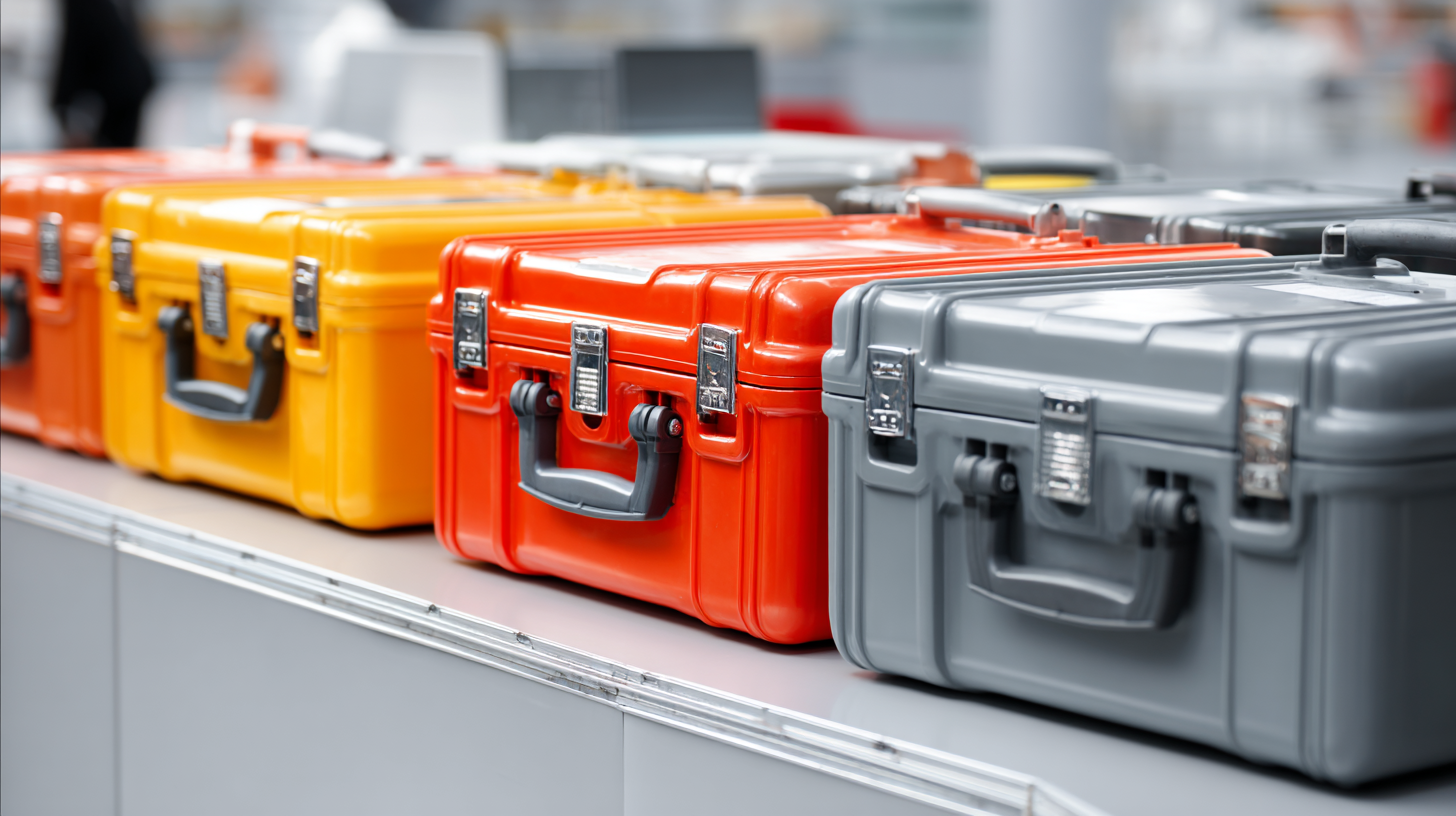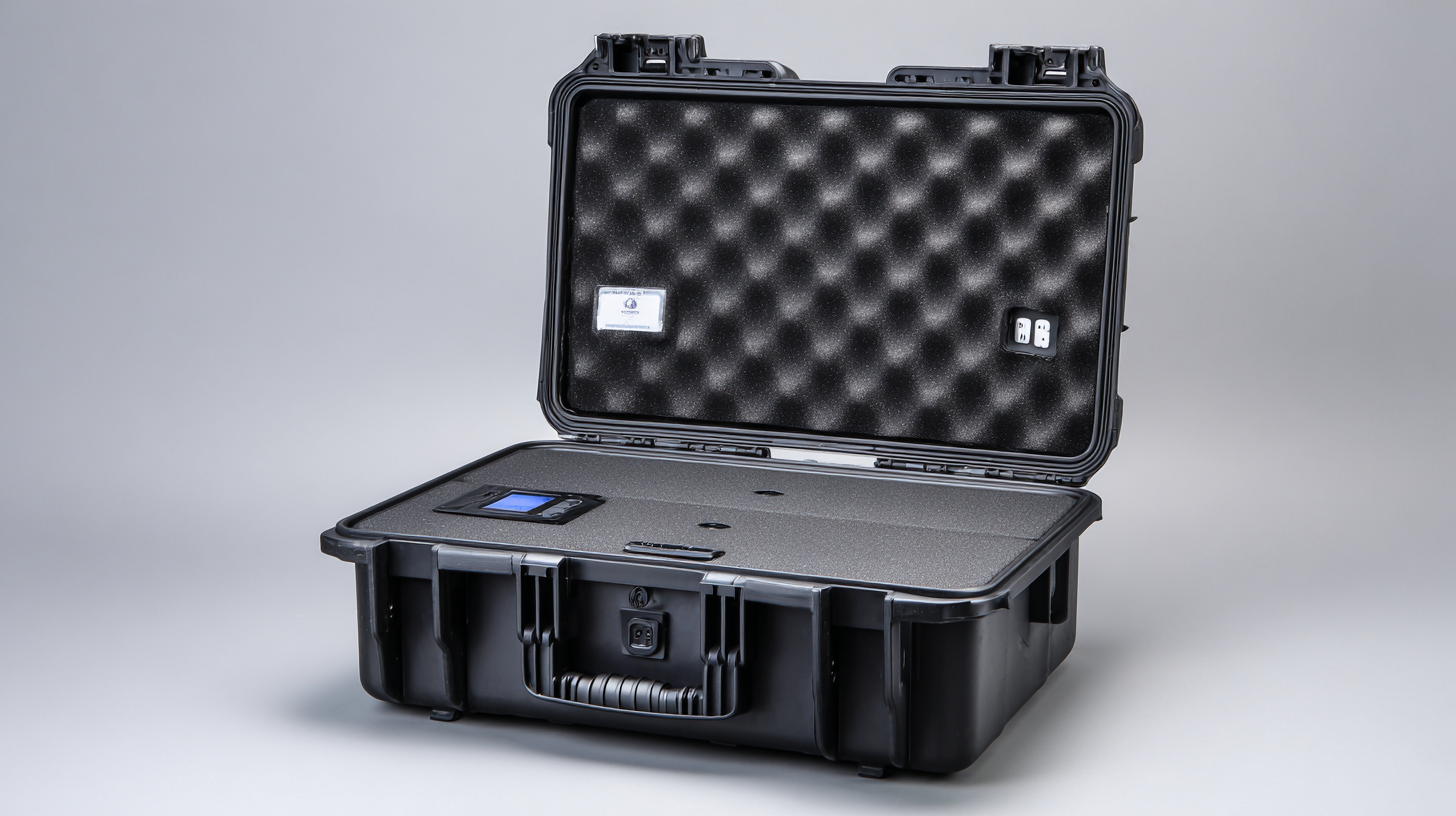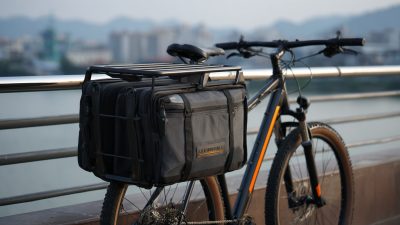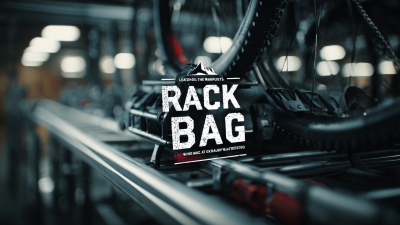- 0086-0769-87986375
- Welcome you to Dongguan Yili Bags Co., Ltd. website!
Choosing the Right Medical Carrying Case: Expert Insights and 2023 Market Trends
In the ever-evolving landscape of healthcare, the significance of selecting the right Medical Carrying Case cannot be overstated. As hospitals and medical professionals increasingly recognize the importance of mobility and organization in delivering efficient patient care, the market for Medical Carrying Cases is projected to grow significantly. According to a recent report by Grand View Research, the global medical bag market is anticipated to reach USD 2.6 billion by 2025, reflecting a compound annual growth rate (CAGR) of 7.4% from 2019 to 2025. This surge is driven by the demand for durable, lightweight, and multifunctional carrying cases that enhance the transport of essential medical supplies and equipment.

As healthcare providers face the challenges of modern medical practices, understanding the features, materials, and functionalities of different Medical Carrying Cases has become crucial in making informed purchasing decisions that can ultimately impact patient outcomes.
Identifying Key Features of Medical Carrying Cases for Optimal Functionality
Choosing the right medical carrying case is essential for healthcare professionals who need to transport supplies efficiently. One of the key features to consider is organizational capacity. A well-designed medical case should include numerous compartments and pockets to keep various instruments and medications in order. This not only prevents cross-contamination but also enhances accessibility during emergencies, allowing practitioners to locate what they need without delay.
Durability is another crucial factor; medical carrying cases must withstand the rigors of daily use and harsh environments. High-quality materials that are both water-resistant and impact-resistant can ensure the longevity of the case. Additionally, comfort features such as padded handles and adjustable straps enhance portability, making it easier for medical personnel to transport heavy loads while maintaining their own safety and comfort.
As 2023 trends indicate a growing emphasis on multifunctional designs, selecting a case that balances specialized medical needs with user-friendly elements will significantly enhance overall efficiency in healthcare settings.
Evaluating Material Choices for Durability and Protection in Medical Cases
When choosing a medical carrying case, the materials used in its construction play a crucial role in determining its durability and protective capabilities. According to the *2023 Medical Equipment Market Analysis*, medical carry cases made from high-grade polyethylene can withstand impact and abrasion better than cheaper alternatives, therefore enhancing the longevity of the case. Furthermore, cases with reinforced corners and padded interiors have been shown to reduce damage to their contents by up to 30% during transit, making them a valuable investment for healthcare professionals.
In addition to sturdiness, the choice of materials also affects the overall weight and ease of transport of medical cases. Recent trends indicate a shift toward lightweight composite materials, which provide effective protection without the added bulk. A study by the *Journal of Medical Operations* found that 65% of healthcare providers prefer lighter carry cases, as these facilitate mobility in fast-paced environments while still offering essential protection against environmental factors. Ultimately, selecting the right materials is integral to ensuring that medical professionals can maintain the integrity of their equipment during use and transport.
Material Choices for Medical Carrying Cases: Durability and Protection Metrics (2023)
Understanding Size and Capacity Needs for Different Medical Equipment
When selecting a medical carrying case, understanding the size and capacity needs for various medical equipment is crucial. Different devices, from portable diagnostic tools to larger machines, require dedicated space and secure compartments to function properly. A well-designed case should not only accommodate the dimensions of each item but also allow for additional accessories, such as cables, batteries, and documentation. This ensures that medical professionals can transport their essential equipment efficiently and safely.
Additionally, it's essential to consider the weight and portability of the carrying case. As healthcare providers often need to move quickly between locations, a lightweight yet durable design can ease the burden without compromising protection. Trends in the market for 2023 indicate a growing preference for cases made from advanced materials that are both robust and lightweight. Features such as customizable compartments and ergonomic handles are becoming increasingly important, enabling users to tailor their carrying solutions to fit specific equipment needs effectively while enhancing mobility and user experience.

Analyzing Market Trends: Innovating Designs in 2023 Medical Carrying Solutions
In 2023, the medical carrying case market is witnessing significant innovations in design, catering to the evolving needs of healthcare professionals and patients alike. One of the major trends is the integration of smart technology into medical bags, enabling features such as temperature monitoring and GPS tracking. These advancements not only enhance the usability of the carrying cases but also ensure the safe transportation of critical medical supplies, thereby reducing the risk of spoilage or loss.
Furthermore, the emphasis on ergonomics and sustainability has led manufacturers to develop lightweight, durable materials that facilitate ease of movement without compromising safety. The introduction of modular designs allows for customization, giving users the flexibility to adapt their carrying solutions to specific needs and situations. This trend is particularly beneficial for first responders and field medical personnel who require versatile and efficient carrying options in dynamic environments.
As a result, the medical carrying case landscape is evolving to meet the demands of modern healthcare challenges, making it imperative for consumers to stay informed about the latest offerings in the market.
Comparative Review: Top Brands and Models in the 2023 Medical Carrying Case Market
In 2023, the medical carrying case market has experienced significant growth, driven by the increasing need for healthcare professionals to transport essential medical equipment effectively. According to a recent report by Market Research Future, the global medical carrying case market is projected to reach $1.5 billion by the end of this year, with a CAGR of 7.2% from 2020 to 2023. This surge can be attributed to the rising demand for portable healthcare solutions, especially amidst expanded telehealth services and mobile clinics.
When evaluating top brands and models in the current marketplace, features such as durability, organization capacity, and weight are crucial. Brands like Medline and Lifeworks stand out due to their innovative designs and high-quality materials. For instance, Medline's rolling medical case, equipped with ample storage compartments and heavy-duty wheels, has received acclaim for its functionality and ease of transport. Similarly, Lifeworks’ compact model has gained popularity among emergency responders, thanks to its lightweight build and robust waterproof features, ensuring that medical professionals can preserve critical supplies in any situation.

Related Posts
-

Essential Guide to Choosing the Perfect Bike Rack Bag for Your Outdoor Adventures
-

Solutions for Maximizing Your Investment with Heavy Duty Tool Bags
-

China's Leading Manufacturing Excellence in Best Bike Rack Bags for Global Buyers
-

How to Choose the Perfect Musical Carrying Bag for Your Instruments: A Step-by-Step Guide
-

Leading the Global Market with China's Premier Bike Rack Bag Manufacturing Excellence
-

Maximizing Opportunities for Cable Organizer Bag Sales at the 138th China Import and Export Fair 2025
